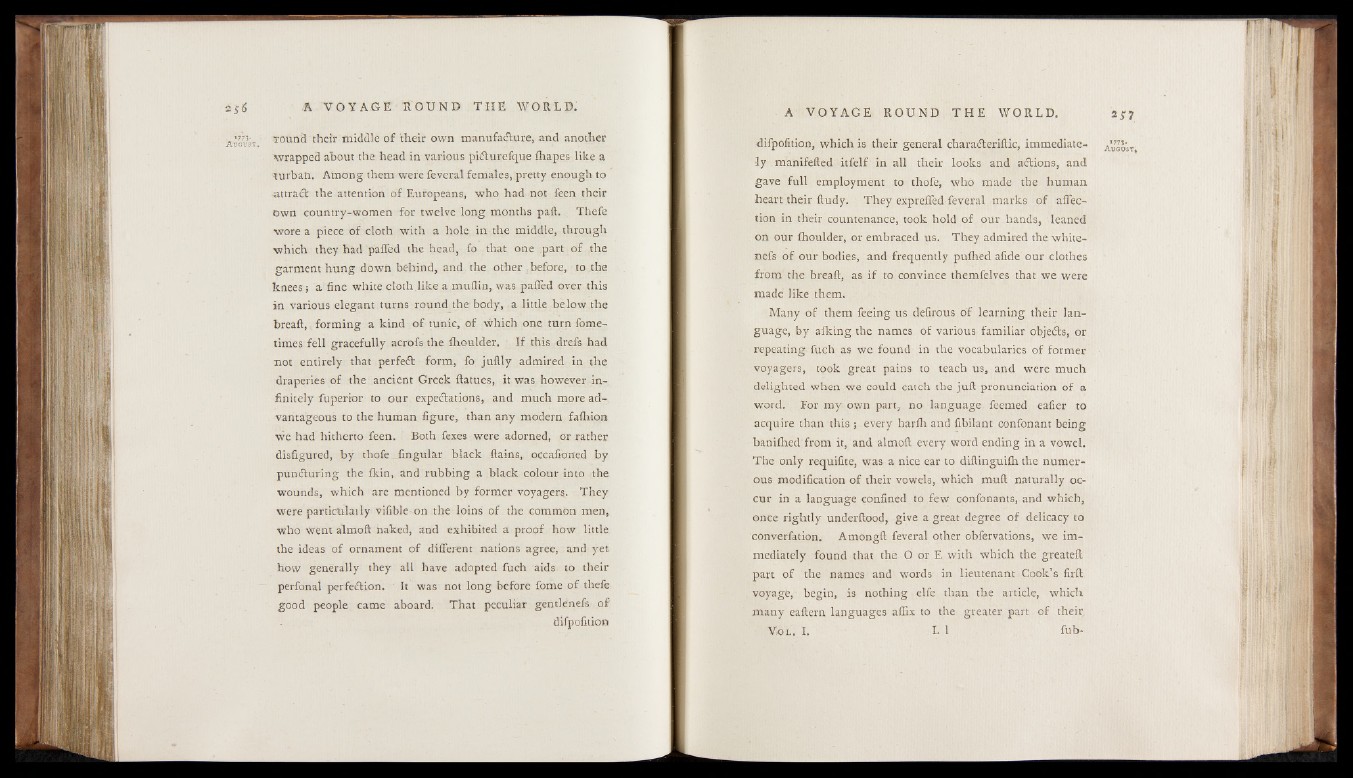
256
B e - round their middle August. of their own manufacture, and another
wrapped about the head in various pitfturefque fliapes like a
tturbah. Atnong them were feveral females, pretty enough to
«attract the attention of Europeans, who had not feen their
own country-women for twelve long months paft. Thefe
wore a piece of cloth with a hole in the middle, through
which they had palled the head, fo that one part of the
garment hung down behind, and the other before, to the
knees ; a fine white cloth like a muflin, was palled over this
in various elegant turns round the body, a little below the
breaft, forming a kind of tunic, of which one turn fome-
times fell gracefully acrofs the fhoulder. If this drefs had
not entirely that perfect form, fo juftly admired in the
draperies of the ancient Greek llatues, it was however infinitely
fuperior to our expectations, and much more advantageous
to the human figure, than any modern falhion
we had hitherto feen. Both fexes were adorned, or rather
disfigured, by thofe lingular black llains, occafioned by
punCturing the Ikin, and rubbing a black colour into the
wounds, which are mentioned by former voyager?. They
were partictilaily vifible on the loins of the common men,
who went almoft naked, and exhibited a proof how little
the ideas of ornament of different nations agree, and yet
how generally they all have adopted fueh aids to their
perfonal perfection. It was not long before fome of thefe
good people came aboard. That peculiar gentlenefs of
difpolition
difpolition, which is their general charaCteriftic, immediate- aVgust
•ly manifefted itfelf in all their looks and actions, and
gave full employment to thofe, who made the human
heart their ftudy. They expreffed feveral marks of affection
in their countenance, took hold of our hands, leaned
on our ffioulder, or embraced us. They admired the wbite-
nefs of our bodies, and frequently pulhed afide our clothes
from the breaft, as if to convince themfelves that we were
made like them.
Many of them feeing us defirous of learning their language,
by afking the names of various familiar objeCts, or
repeating fuch as we found in the vocabularies of former ■
voyagers, took great pains to teach us, and were much
delighted when we could catch the juft pronunciation of a
word. For my own part, no language feemed eafier to
acquire than this i every harfh and fibilant confonant being
baniffied from it, and almoft every word ending in a vowel.
The only requifite, was a nice ear to diftinguiffi the numerous
modification of their vowels, which muft naturally oc- :
cur in a language confined to few confonants, and which,
once rightly underftood, give a great degree of delicacy to
converfation. Amongft feveral other obfervations, we immediately
found that the O or E with which the greateft
part of the names and words in lieutenant Cook’s firft
voyage, begin, is nothing elfe than the article, which
many eaftern languages affix to the greater part of their
V ol. I. L I fub